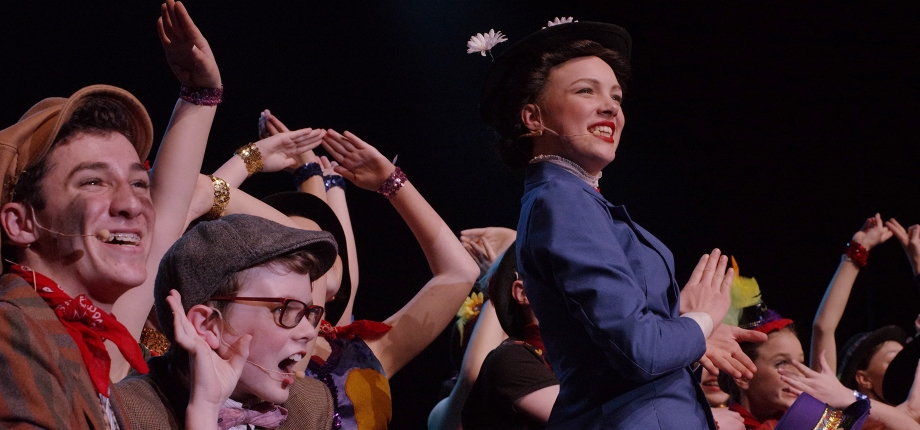Filichia Features: iTheatrics Wrote the Book on Producing Musicals

Filichia Features: iTheatrics Wrote the Book on Producing Musicals
“The goal of this book,” say the authors, “is to ensure your program isn’t merely surviving through the process of a musical but thriving.”
Yes: The iTheatrics Method is more than just 364 pages on how to produce one good musical. As its subtitle unsubtly states, this is The Quintessential Guide to Creating Quality Musical Programs. This company wants you to stay in business so you can produce a hundred million musicals with schoolchildren. The newly published tome (available on Amazon) is decidedly geared to the production of abridged musicals; that includes MTI’s pioneering Broadway Junior series.
And what, you may ask, exactly is iTheatrics? As the book explains, the company “was founded in 2006 by Timothy Allen McDonald with the mission to bring quality musical theater programs to young people everywhere.”
Musical theater is a collaborative art, so when McDonald was asked to write a book, he knew that Cynthia A. Ripley, his Lead Educational Consultant and Marty Johnson, his Director of Education, would make it stronger. They’ve thoroughly succeeded.
Start out, they insist, by learning “The Five Ts”:
- Team: “Students who have aged out of your program often make great stage managers.”
- Time: “One minute of performance requires on the average one hour of rehearsal.”
- Talent: “Have at least two people who could potentially play the key principle roles; you’ll want a spare should one of your potential stars choose not to be involved.”
- Tech: “If a local community theater presented Guys and Dolls several years ago, their Manhattan backdrop may be perfect for Thoroughly Modern Millie, Jr.”
- Title: “What’s the point of putting on a musical that alienates the majority of your community?”
The book dispenses advice all the way from classroom teachers to Sir Cameron Mackintosh. You’ll see why Fame and High School Musical – although both take place in seats of secondary education – shouldn’t use the same set.
You’ll be reminded that you must have a license to mount your musical even if you plan to give away free tickets. Remember that show business is always a business and those who created the musical deserve compensation.
However, McDonald, Ripley and Johnson urge you not to dispense free tickets: “Charge admission, for it conveys to your community that what you do has value.”
Speaking of money: “Even if you’re fully funded, do a budget. The day may come when the program you’ve worked so hard to develop is questioned.”
Never forget, though, that producing a show should be fun – at least for the kids. Thus the authors stress “the importance of a welcoming environment right from the first day of rehearsal.” That doesn’t mean a lackadaisical atmosphere: “Warm-ups are essential to every rehearsal” they stress more than once.
The book is peppered with “Peaches” and “Pits” – a term the three coined while working on James and the Giant Peach. “Peaches” are good things while “Pits” are of course bad. A typical peach? Kenosha Wisconsin’s Kristen M. Singer’s “Don’t be afraid to ask for help. There is a lot of generosity out there!” A typical “Pit?” “I let a parent talk me into a casting decision.”
(You can guess the rest.)
Casting is a big bugaboo. “The disappointment on a child’s face when she doesn’t receive the role of Annie can be difficult to stomach” was a pit for Emily Mirabile in Boothbay, Maine. She does make the statement at least slightly peachy: “Know that one of the best lessons you can give your students is the ability to accept rejection and still support your peers. It’s something the whole world needs to work on.”
Should you not have a gen-u-ine theater at your disposal, this book is still for you. As the writers say, “If your only theater space is your classroom, your focus becomes how to tell the story using the strengths of that space. That may mean using desks to creatively become The Cave of Wonder in Disney’s Aladdin, Jr.”
The advice to “Wind up the workshop with a question-and-answer session” may seem obvious, but the authors still have five additional words to go: “led by your veteran students.” The older kids then can “share what it’s like to be in a show and why they enjoy it so much.” (Like it or not, the kids will probably believe their peers more than they will you.)
How to deal with boys’ changing voices, how to set up a quick change, how to avoid overbooking your theater -- you should be so lucky! – it’s all here. The authors do have some strong caveats: “For fire onstage, just say no.” … “Unless a weapon is absolutely essential to storytelling, we strongly recommend foregoing it – and never use a real gun.”
Other than those, though, virtually every page of The iTheatrics Method brims with the triumvirate’s enthusiasm. In the optimistic tradition of the best musicals, they’ve put on a happy face, shown that you gotta have heart and that you’ve got to have a dream in order to have a dream come true.
Best of all, because they climbed ev’ry musical theater mountain, you’ll find that you’ll now only have to face musical theater molehills.
You may e-mail Peter at pfilichia@aol.com. Check out his weekly column each Monday at www.broadwayselect.com and Tuesday at www.masterworksbroadway.com. His book, The Great Parade: Broadway’s Astonishing, Never-To-Be Forgotten 1963-1964 Season is now available at www.amazon.com.

























